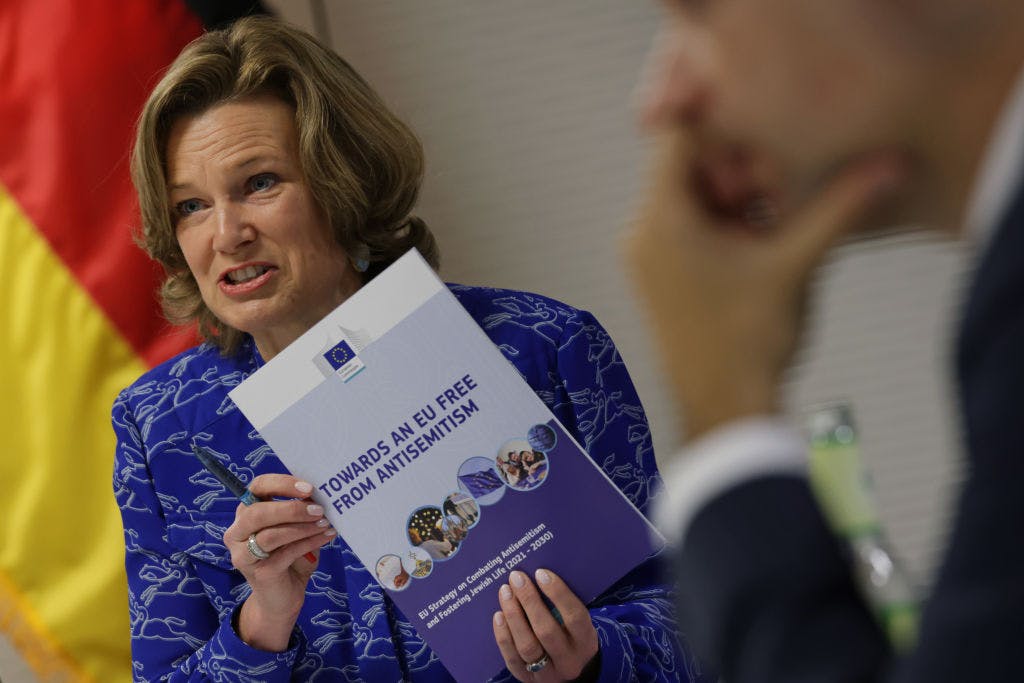Published: 8 May 2024
Last updated: 9 May 2024
Experts on antisemitism have called on the Australian government to appoint a coordinator to spearhead the fight against the scourge, and join some 40 other countries that have created similar roles.
“Without an antisemitism coordinator, Australia simply doesn't have a seat at the table. That makes it harder for the Australian government to be fully aware of the global trends, or to adopt best practice,” said Andre Oboler, CEO of the Online Hate Prevention Institute, at an international panel discussion hosted by The Jewish Independent on May 6.
The discussion, entitled Antisemitism since October 7 – Australia and beyond, also featured Katharina von Schnurbein, European Commission Coordinator on combating antisemitism and fostering Jewish life, and Noah Loven, President of the Australasian Union of Jewish Students (AUJS). It was moderated by TJI editor Deborah Stone.
“People around the world are concerned and asking about antisemitism in Australia based on the incidents that are making news globally,” Oboler added. "We need to admit we have a problem, and we need to respond. A coordinator would lead that response."
Oboler's call was echoed by von Schnurbein, who said the appointment be an "important sign" to the local Jewish community and better assist in reaching government agencies and initiatives.
“We have a global network now of almost 40 envoys, we meet regularly. Our next meeting is in Buenos Aires to commemorate the bombing of the Jewish community centre 30 years ago. It's about time Australia joined the club and I look forward to it,” she said.
According to von Schnurbein, the coordinator does not necessarily have to be Jewish. “I am not Jewish. I do not think you do not need a Jewish person in the role. In fact, by having a non-Jew, it shows that the problem is a much wider threat, to democracy in general and not just the Jewish community.”
Loven, who represented the younger Australian Jewish population at the event, said the need for a coordinator was underscored by the way that Australian universities had adopted the International Holocaust Remembrance Alliance (IHRA) definition of antisemitism but had been unwilling to invoke it to combat antisemitic behaviour on campuses.
“The IHRA definition has been highly politicised to the extent that many universities do not want to touch the definition because of what they perceive as a limitation of freedom of speech and a limitation of academic expression," said Loven, who filled in as a late replacement for US special envoy Deborah Lipstadt, who had to withdraw at the last minute.
“There are so many qualifications and caveats that the IHRA definition isn't being utilised in the way that that it was originally intended to – as a framework for what is and isn’t antisemitic behaviour.”
RELATED STORY
‘You are not alone’: Biden in Holocaust remembrance speech vows to fight Oct. 7 denialism (JTA)
President Joe Biden aimed straight at American Jewish anxieties of the moment in a speech commemorating the Holocaust, pledging to keep alive the memory of Hamas’s Oct. 7 massacres in the face of waves of anti-Israel and antisemitic actions.




Comments
No comments on this article yet. Be the first to add your thoughts.